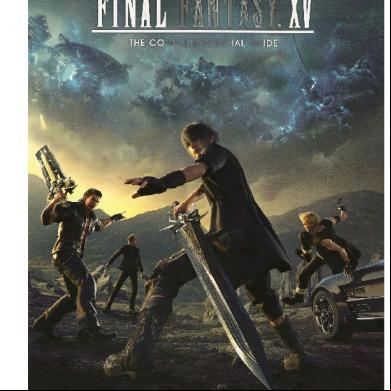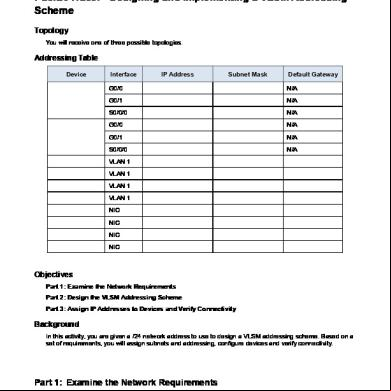Piggyback Marketing r3q4q
This document was ed by and they confirmed that they have the permission to share it. If you are author or own the copyright of this book, please report to us by using this report form. Report 3b7i
Overview 3e4r5l
& View Piggyback Marketing as PDF for free.
More details w3441
- Words: 606
- Pages: 10
PIGGY BACK MARKETING
Piggyback marketing
Definition Low cost market entry strategy in which two or more firms represent one another's complementary (but non-competing) products in their respective markets. Eg: Marico and Kaya
Piggy back exporting
Piggyback exporting describes a situation in which one company markets its products through the distribution channels of a second company. Two major reasons for piggyback marketing are:
(1) a local company desires to enter multinational markets but lacks the money, experience, or possibly the inclination to learn what is necessary to be successful in the international marketplace; (2) an existing multinational company is seeking to fill out its product lines to stay competitive overseas.
Piggybacking involves products which complement one another instead of competing. This method of exporting is one of the least problematic of all of the methods of entering foreign markets. Of course, success is dependent upon who the partners are and the commitment to making the partnership function effectively.
Piggy back marketing is an innovation in international distribution whereby one manufacturer obtains distribution of products through other’s distribution channels. Both parties can benefit:
The active distributor makes fuller use of its distribution capacity and increases revenue The manufacturer using the piggy back arrangement does so at a cost much lower than direct arrangement
Example
Kauai Kookie company in Japan sells Hawaiian cookies through travel agents to Japanese tourists after they have returned home from Hawaii, thus saving on their baggage.
India-based international companyexample
In local scenario, one prominent example of piggyback marketing is Kaya piggybacking Marico. Marico is a leading Indian Group in Consumer Products& Services in the Global Beauty and Wellness space and reaches out to more than 20 countries across the world. In Bangladesh, Marico Bangladesh Limited (MBL) holds a leadership position in the FMCG space. In 2011, the Rs480-crore Marico Bangladesh has been ranked by Bangladesh Brand Forum as the second most vibrant brand in the country after Nokia. In 2010, Marico set to expand its horizon by opening its skin care salon, Kaya Skin Clinic. Kaya, has piggybacked on the 14-year success of Marico to open its 101st skin clinic in Dhaka — a market it claims to be its‘ second skin‘.
Marico Bangladesh Ltd. (MBL)
Marico Bangladesh Limited (MBL) holds a leadership position in the FMCG space. MBL recorded a turnover of Tk. 5,358 Million ( USD 73.4 Million) in 12 months ended on 30th September, 2010 and Tk. 2,846 Million ( USD 39 Million) in 6 months ended on 31st March, 2011. MBL is the subsidiary of Marico Limited, India (Marico).
MBL
MBL’s Products in Pure Coconut oil, Edible Oil, Hair care and Skin Care reach out to more than 500,000 outlets in Bangladesh. MBL touches the lives of 1 out of every 3 Bangladeshi through its portfolio of brands such as Parachute, Saffola, Hair Code, Aromatic, Camelia and Beliphool to name a few, most of which enjoy leadership positions (No. 1 in coconut oil segment), with significant market shares in respective categories.
MBL
Marico’s focus on sustainable profitable growth is manifest through its consistent financial performance – a CAGR of 51% in Turnover and 34% in Profits over the past 5 years. In 2010, Bangladesh Brand Forum along with Nielsen Bangladesh evaluated 2005 brands across all categories nationwide (previous year was 1796) and among this Parachute was awarded as the 5th Most Trusted Brand. In addition to this Parachute also received the Best Brand Award in the Coconut Oil category.
MBL’s product range
Piggyback marketing
Definition Low cost market entry strategy in which two or more firms represent one another's complementary (but non-competing) products in their respective markets. Eg: Marico and Kaya
Piggy back exporting
Piggyback exporting describes a situation in which one company markets its products through the distribution channels of a second company. Two major reasons for piggyback marketing are:
(1) a local company desires to enter multinational markets but lacks the money, experience, or possibly the inclination to learn what is necessary to be successful in the international marketplace; (2) an existing multinational company is seeking to fill out its product lines to stay competitive overseas.
Piggybacking involves products which complement one another instead of competing. This method of exporting is one of the least problematic of all of the methods of entering foreign markets. Of course, success is dependent upon who the partners are and the commitment to making the partnership function effectively.
Piggy back marketing is an innovation in international distribution whereby one manufacturer obtains distribution of products through other’s distribution channels. Both parties can benefit:
The active distributor makes fuller use of its distribution capacity and increases revenue The manufacturer using the piggy back arrangement does so at a cost much lower than direct arrangement
Example
Kauai Kookie company in Japan sells Hawaiian cookies through travel agents to Japanese tourists after they have returned home from Hawaii, thus saving on their baggage.
India-based international companyexample
In local scenario, one prominent example of piggyback marketing is Kaya piggybacking Marico. Marico is a leading Indian Group in Consumer Products& Services in the Global Beauty and Wellness space and reaches out to more than 20 countries across the world. In Bangladesh, Marico Bangladesh Limited (MBL) holds a leadership position in the FMCG space. In 2011, the Rs480-crore Marico Bangladesh has been ranked by Bangladesh Brand Forum as the second most vibrant brand in the country after Nokia. In 2010, Marico set to expand its horizon by opening its skin care salon, Kaya Skin Clinic. Kaya, has piggybacked on the 14-year success of Marico to open its 101st skin clinic in Dhaka — a market it claims to be its‘ second skin‘.
Marico Bangladesh Ltd. (MBL)
Marico Bangladesh Limited (MBL) holds a leadership position in the FMCG space. MBL recorded a turnover of Tk. 5,358 Million ( USD 73.4 Million) in 12 months ended on 30th September, 2010 and Tk. 2,846 Million ( USD 39 Million) in 6 months ended on 31st March, 2011. MBL is the subsidiary of Marico Limited, India (Marico).
MBL
MBL’s Products in Pure Coconut oil, Edible Oil, Hair care and Skin Care reach out to more than 500,000 outlets in Bangladesh. MBL touches the lives of 1 out of every 3 Bangladeshi through its portfolio of brands such as Parachute, Saffola, Hair Code, Aromatic, Camelia and Beliphool to name a few, most of which enjoy leadership positions (No. 1 in coconut oil segment), with significant market shares in respective categories.
MBL
Marico’s focus on sustainable profitable growth is manifest through its consistent financial performance – a CAGR of 51% in Turnover and 34% in Profits over the past 5 years. In 2010, Bangladesh Brand Forum along with Nielsen Bangladesh evaluated 2005 brands across all categories nationwide (previous year was 1796) and among this Parachute was awarded as the 5th Most Trusted Brand. In addition to this Parachute also received the Best Brand Award in the Coconut Oil category.
MBL’s product range










